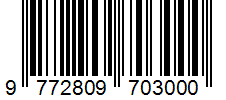Publication Ethics
Jurnal ini berkomitmen untuk menjaga standar etika publikasi yang tinggi sesuai dengan pedoman yang ditetapkan oleh Committee on Publication Ethics (COPE).
Tanggung Jawab Penulis
- Menyajikan karya yang orisinal dan tidak mengandung plagiarisme.
- Tidak melakukan publikasi ganda atau redundan.
- Memberikan atribusi yang jelas untuk setiap sumber yang dikutip.
- Melaporkan data secara akurat dan tidak melakukan manipulasi.
Tanggung Jawab Editor
- Melakukan penilaian objektif terhadap naskah tanpa memandang ras, gender, atau institusi penulis.
- Menjaga kerahasiaan informasi terkait manuskrip selama proses review.
- Menghindari konflik kepentingan dengan penulis atau institusi terkait.
Tanggung Jawab Reviewer
- Melakukan review secara profesional dan konstruktif untuk meningkatkan kualitas artikel.
- Menjaga kerahasiaan informasi dalam proses penelaahan.
- Tidak menggunakan isi manuskrip untuk kepentingan pribadi.
Pelanggaran Etika
Setiap dugaan pelanggaran etika, seperti fabrikasi data, plagiarisme, atau konflik kepentingan, akan ditindaklanjuti sesuai dengan kebijakan jurnal, termasuk penarikan artikel jika diperlukan.
Kami percaya bahwa penerapan etika publikasi yang ketat akan meningkatkan kepercayaan dan kredibilitas jurnal ini di komunitas akademik. Jika ada pertanyaan terkait kebijakan etika, silakan hubungi tim editorial.








